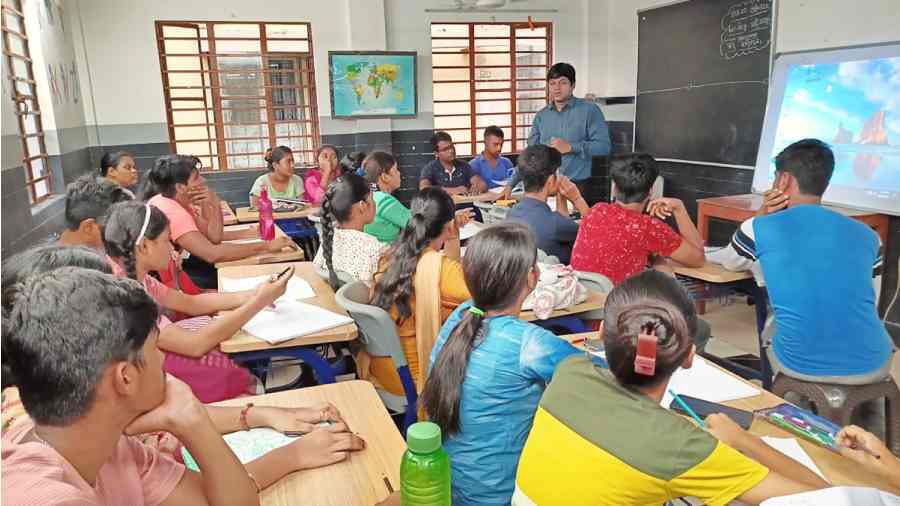Babla Chowdhury is an inspiration for many young boys and girls.
Chowdhury, who was raised in a shelter for street children, is now heading the computer department in the same organisation that runs the shelter.
In his 30s, he is a full-time worker at the NGO, Calcutta Social Project.
He is not alone, though. There are a few others, too.
Some college students, who also grew up at the shelter, teach younger children at the centre and earn a living.
The idea is to show young children that a turnaround is indeed possible, The examples are right in front of them.
The young men and women, who work as teachers now, are also being trained so they can take up bigger roles in the future, appropriate to their personalities, a member of the organisation said.
For example, Rohit Bhagat is learning how to conduct surveys on the ground for various social programmes.
Munmun Burman is learning to communicate with donors because she is perceived to speak well.
Rani Kumari, who is undergoing nursing training, is part of the medical care programme.
Chowdhury was a 13-yearold when two Swedish men came to the NGO to intern with them.
Back in 2000, the NGO had procured second-hand desktops and introduced a programme to teach computers to girls.
Chowdhury would hang around the two Swedish boys despite it being a programme for girls.
The programme continued for three months and Chowdhury picked up several skills.
But that was not all. He applied and got through a two-year animation course in 2011.
Since 2014, Chowdhury has been teaching computers to students in Classes X, XI and XII, who have no access to computers either at home or in school.
“It is only when they complete school that the students realise they have no knowledge of computers. In vernacular medium schools, they do not have access to computers as such and also do not realise the gravity of not knowing it,” said Chowdhury.
Working with the children is not only about teaching them a course but understanding their situation, said Chowdhury.
“Often it is the environment in which they live that pulls them down. They have to balance what they learn at the centre with the surroundings they go back to. If the environment changes it transforms their mental state,” he said.
Has the pandemic brought these children closer to technology?
Chowdhury does not think so. “The two years of online classes has only given them access to social media but not to the real knowledge of computers,” he said.
“They need to know because if they are to apply for any job they must know some aspects of working on a computer, which is not merely browsing the Internet.”
The social sector needs men like Chowdhury, said Arjun Dutta of Calcutta Social Project. “We need people who can empathise with these children.”
